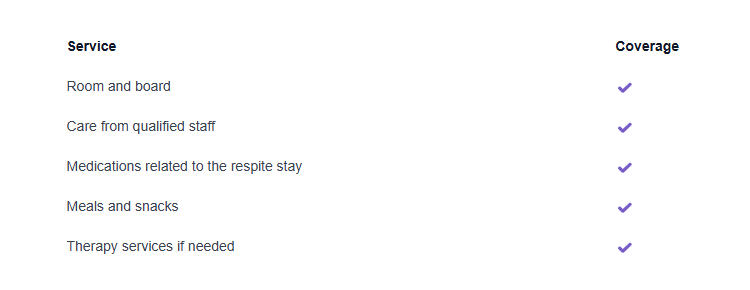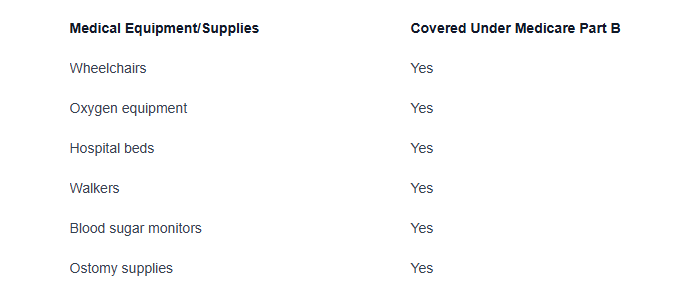Medicare and End-of Life Care: What to Know About Coverage
March 5, 2025
Master Medicare & end-of-life care! Unlock coverage insights for a peaceful journey ahead.


Understanding Medicare and End-of-Life Care
When it comes to navigating Medicare for end-of-life care, understanding the coverage provided is essential for individuals and their families. Medicare offers various benefits to support individuals during this critical time. Let's delve into the overview of Medicare coverage and emphasize the importance of planning for end-of-life care.
Overview of Medicare Coverage
Medicare, the federal health insurance program primarily for individuals aged 65 and older, provides coverage for end-of-life care services to ensure comfort and support during challenging times. Understanding the different parts of Medicare and the benefits they offer can help individuals make informed decisions regarding their healthcare needs.

Medicare Part A covers hospice care and inpatient respite care for individuals facing terminal illnesses or in need of palliative services. Part B, on the other hand, includes doctor and nurse practitioner services, as well as coverage for necessary medical equipment and supplies to support end-of-life care.
Importance of Planning for End-of-Life Care
Planning for end-of-life care is a critical aspect of ensuring that individuals receive the appropriate support and services when facing terminal illnesses or significant health challenges. By proactively discussing preferences, documenting advance directives, and understanding Medicare coverage options, individuals can make informed decisions about their care and alleviate burdens on their loved ones.
Taking the time to plan for end-of-life care can provide peace of mind and clarity during difficult times. Understanding the coverage offered by Medicare and how it aligns with one's preferences and needs is key to receiving quality care and support at the end of life. It is crucial for individuals to have open discussions with healthcare providers, family members, and legal representatives to create a comprehensive plan that respects their wishes and ensures comfort and dignity in their final days.
Medicare Part A Coverage
Hospice Care Coverage
Inpatient Respite Care Coverage
When it comes to Medicare Part A coverage for end-of-life care, understanding the options available is crucial for individuals and their families. Medicare Part A provides coverage for various services related to hospice care and inpatient respite care, offering support during challenging times.
Hospice Care Coverage
Hospice care is a vital component of end-of-life care, focusing on enhancing the quality of life for individuals with terminal illnesses. Medicare Part A covers hospice services for beneficiaries who meet specific criteria. These services include:

It's important to note that to qualify for hospice care coverage under Medicare Part A, a physician must certify that the individual has a life expectancy of six months or less if the illness runs its normal course.
Inpatient Respite Care Coverage
In addition to hospice care, Medicare Part A also covers inpatient respite care services. Respite care provides temporary relief to caregivers by offering short-term, inpatient care to individuals enrolled in a hospice program. This allows caregivers to rest and attend to their own needs while ensuring that their loved ones receive proper care.
The coverage for inpatient respite care includes:

Understanding the coverage provided by Medicare Part A for hospice care and inpatient respite care is essential for individuals and their families facing end-of-life decisions. By utilizing these services, beneficiaries can access the necessary support and resources to make this transition as comfortable and dignified as possible.
Medicare Part B Coverage
When it comes to Medicare coverage for end-of-life care, understanding the benefits provided under Part B is crucial. This section will delve into the coverage for doctor and nurse practitioner services, as well as medical equipment and supplies.
Doctor and Nurse Practitioner Services
Under Medicare Part B, individuals have access to a wide range of healthcare services provided by doctors and nurse practitioners. These services encompass various aspects of medical care, including consultations, evaluations, treatment plans, and preventive services. Medicare Part B coverage extends to:
- Doctor visits for diagnosing and managing medical conditions.
- Nurse practitioner consultations for routine care and specialized services.
- Specialist consultations for specialized medical treatment and expertise.
- Preventive services such as vaccinations, screenings, and counseling.
It is important to note that Medicare Part B coverage for doctor and nurse practitioner services plays a significant role in ensuring that individuals receive comprehensive and personalized care to address their end-of-life needs effectively.
Medical Equipment and Supplies
In addition to covering healthcare services, Medicare Part B also provides coverage for essential medical equipment and supplies that are crucial for end-of-life care. This coverage includes a wide range of durable medical equipment (DME) and supplies necessary for managing medical conditions and improving quality of life. Examples of covered medical equipment and supplies include:

Ensuring access to necessary medical equipment and supplies through Medicare Part B coverage is essential in facilitating comfort, mobility, and overall well-being for individuals receiving end-of-life care. By understanding the coverage provided for medical equipment and supplies, individuals can make informed decisions to support their healthcare needs during this critical period.
Medicare Advantage Plans and End-of-Life Care
When considering end-of-life care coverage under Medicare, it's essential to be aware of the additional coverage options provided by Medicare Advantage plans. These plans offer unique benefits beyond Original Medicare, giving individuals more flexibility in managing their healthcare needs as they approach the end of life.
Additional Coverage Options
Medicare Advantage plans, also known as Medicare Part C, are offered by private insurance companies approved by Medicare. In addition to the coverage provided by Original Medicare (Parts A and B), Medicare Advantage plans often include extra benefits that can be beneficial for end-of-life care. Some common additional coverage options under Medicare Advantage plans include:
- Prescription Drug Coverage: Many Medicare Advantage plans offer prescription drug coverage (Part D), which can be crucial for managing pain and symptoms associated with end-of-life care.
- Dental and Vision Care: Some Medicare Advantage plans include dental and vision care benefits, addressing important aspects of overall well-being during end-of-life stages.
- Wellness Programs: Certain plans may offer wellness programs and services to support individuals and their families in navigating the emotional and physical challenges of end-of-life care.
- Care Coordination Services: Medicare Advantage plans often provide care coordination services to ensure that individuals receive comprehensive and integrated care tailored to their specific needs.
Understanding the Differences
When comparing Medicare Advantage plans for end-of-life care coverage, it's important to understand the differences between these plans and Original Medicare. While Original Medicare provides standardized coverage across the country, Medicare Advantage plans vary in terms of benefits, cost, and network restrictions.

Before enrolling in a Medicare Advantage plan for end-of-life care, individuals should carefully review the plan's benefits, restrictions, and costs to determine what aligns best with their healthcare preferences and needs. By understanding the differences between Medicare Advantage plans and Original Medicare, individuals can make informed decisions to ensure comprehensive coverage and support during the end-of-life journey.
Advance Directives and Medicare
When it comes to navigating Medicare for end-of-life care, understanding the role of advance directives is crucial. Advance directives are legal documents that outline an individual's preferences regarding their medical care in case they are unable to communicate their wishes. In the context of Medicare coverage for end-of-life care, advance directives play a significant role in ensuring that a patient's wishes are respected and followed.
Importance of Advance Directives
Advance directives serve as a guide for healthcare providers and family members when making medical decisions on behalf of a patient who is no longer able to communicate their preferences. By clearly stating one's healthcare choices in advance directives, individuals can maintain control over the type of care they receive, even when they are no longer able to advocate for themselves.
Having advance directives in place helps to alleviate confusion and conflict among family members and healthcare providers during critical medical situations. It provides a sense of assurance that the patient's wishes regarding end-of-life care will be honored and respected.
How Advance Directives Influence Care
Advance directives have a direct impact on the medical care provided to an individual, especially in the context of Medicare coverage for end-of-life care. Healthcare professionals are ethically and legally bound to adhere to the directives outlined in these documents. This means that decisions regarding life-sustaining treatments, resuscitation, and other medical interventions will align with the individual's stated preferences.
By incorporating advance directives into the Medicare coverage planning process, individuals can ensure that their end-of-life care preferences are known and honored. It empowers patients to make informed decisions about their medical treatment and relieves their loved ones of the burden of making complex medical choices without clear guidance.
Understanding the importance of advance directives and their influence on care is essential for individuals seeking to secure comprehensive and personalized end-of-life care through Medicare coverage. By proactively addressing these legal aspects of healthcare decision-making, individuals can take control of their medical treatment and establish a framework for compassionate and respectful end-of-life care.
Navigating Medicare for End-of-Life Care
As individuals approach the end of life, understanding Medicare coverage for end-of-life care becomes paramount. Navigating the complexities of Medicare can be daunting, but with the right resources and informed decision-making, individuals can ensure proper coverage for their end-of-life needs.
Resources for Understanding Coverage
When it comes to deciphering Medicare coverage for end-of-life care, having access to reliable resources is essential. Here are some key resources that can help individuals better understand their Medicare coverage options for end-of-life care:

By utilizing these resources, individuals can gain a better understanding of their Medicare coverage and make informed decisions regarding end-of-life care.
Tips for Making Informed Decisions
Making informed decisions about Medicare coverage for end-of-life care requires careful consideration and planning. Here are some tips to help individuals navigate the complexities of Medicare and ensure proper coverage for their end-of-life needs:
- Review Your Medicare Plan: Understand what services are covered under your Medicare plan, especially those related to end-of-life care such as hospice services and palliative care.
- Consult with Healthcare Providers: Discuss your end-of-life care preferences with your healthcare providers to ensure that your care aligns with your wishes and that Medicare covers the necessary services.
- Complete Advance Directives: Create advance directives detailing your healthcare preferences and designate a healthcare proxy. These directives will guide medical professionals in providing care that aligns with your wishes.
- Explore Medicare Advantage Plans: Consider enrolling in a Medicare Advantage plan that offers additional coverage options for end-of-life care, such as extended hospice benefits or enhanced palliative care services.
- Stay Informed: Stay updated on Medicare policy changes and coverage updates related to end-of-life care by regularly reviewing official Medicare communications and notifications.
By utilizing these tips and resources, individuals can navigate Medicare effectively and ensure that their end-of-life care needs are addressed in accordance with their preferences and coverage options.
Sources
https://www.medicalnewstoday.com/articles/does-medicare-cover-palliative-care
https://www.caringinfo.org/planning/financial-matters/medicare/
https://www.healthline.com/health/medicare/does-medicare-cover-palliative-care













